This monthly VLOG deals with issues related to sexual health and we hope will contribute to public education about sexual health and help viewers, both women and men, learn about prevention and treatment for the benefit of their own health.
Script of Interview
Interviewee Dr. Francois Fong, (FF)
Position Managing Director
Company name Neo-Health Group
Company website https://www.neohealth.com.hk/
Interviewer John D. Evans, CFA (JE)
Interview conducted on 20 January 2022
JE Okay, good day to this new episode of SEIML Ventures. We have today our second in a monthly series with Dr. Francois Fong of Neo Health Group in Hong Kong. This monthly vlog deals with issues related to sexual health, and we hope will contribute to public education about sexual health and help viewers, both women and men learn about prevention and treatment for the benefit of their own health. Today’s topic is HPV, Human Papilloma Virus HPV is the most common viral infection of the reproductive track. Most sexually active women and men will be infected at some point in their lives, and perhaps more than once, and cervical cancer is by far the most common HPV related disease in women. Nearly all cases of cervical cancers can be attributable to HPV infection. So, with that let me introduce Dr. Francois Fong again. Hi, Francois, how are you?
FF Good. John, how are you?
HPV: the basics
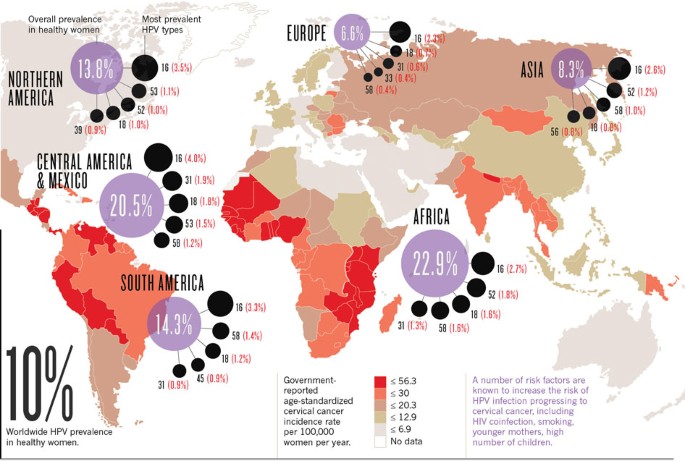
JE Doing well, doing well. Well, to kick things off, let’s just give the viewers an overview of the basics of HPV. What is it? How do you get it? How common is it in Asia?
FF Well, as you mentioned, HPV is one of the most common sexually transmitted infections. However, not all HPV transmission are caused by sexual contact. So around 90% of HPV infection are related to sexual means. But about 10% people will actually contract HPV from day-to-day environmental contacts. So, people can pick up HPV from through their hands, and also themself transmitted. So, in some research actually indicates about 10% of children also carry HPV infections. So is a very common virus and for sexually active male, which are our patients, roughly about 60 – 70% of them will carry some kind of HPV.
JE That’s interesting that, I just assumed it was through sexual contact, but therefore even someone who’s not sexually active, still has to consider it as a potential risk.
FF That’s right. HPV is transmitted through skin-to-skin contact. So even with condom protections, with sexual contact, the area where the condom doesn’t cover can still transmit HPV or from hand to genital contact, oral sex, so any skin contact will potentially transmit HPV infection.
HPV: the consequences for women
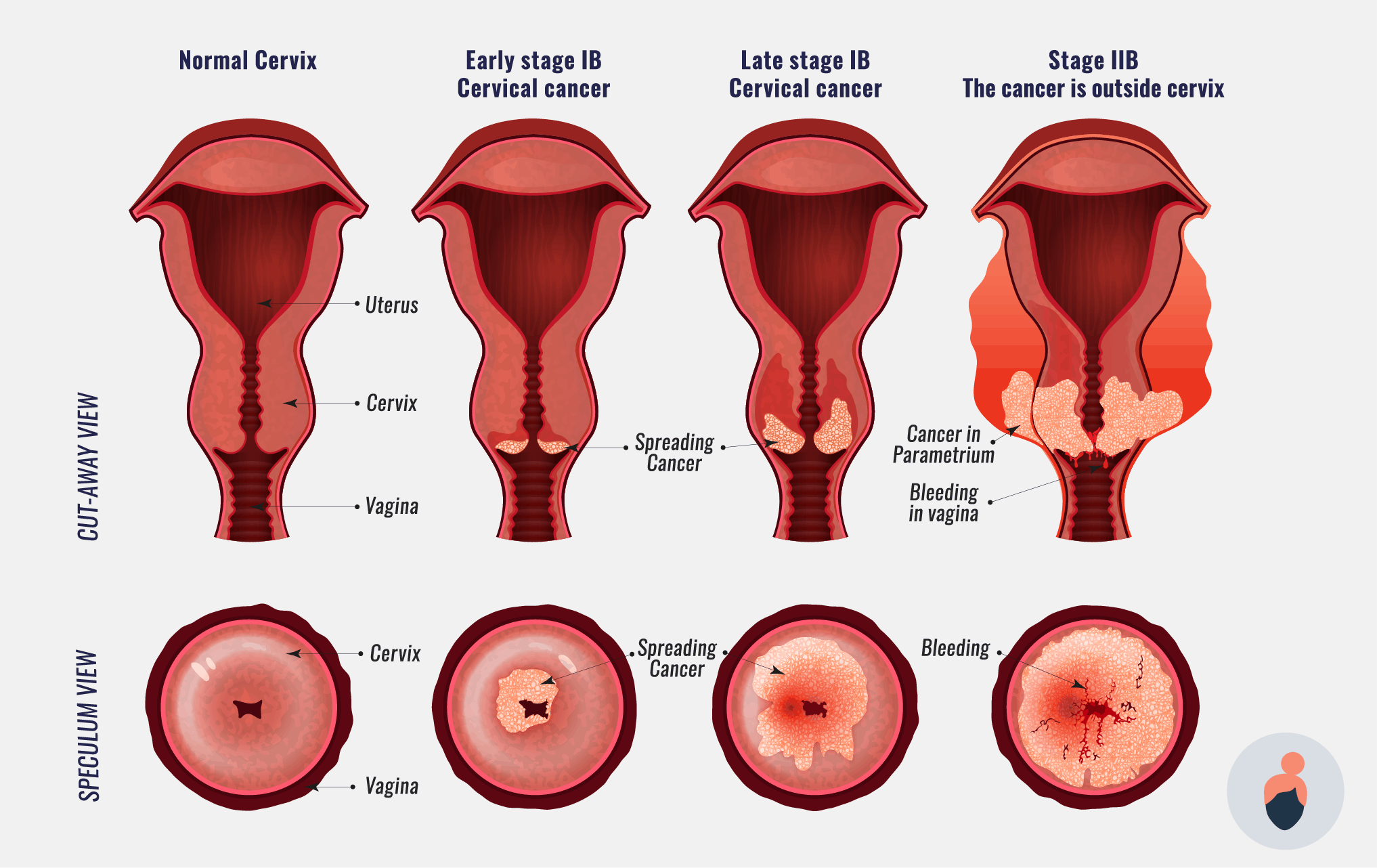
JE Okay, okay. So now we understand it a little bit better and how prevalent it is. Let’s start off and talk about what are the consequences of HPV for women.
FF So generally, HPV divides into two categories. So that is the high-risk genotypes and also the low-risk genotypes. The high-risk genotypes are the ones that potentially can cause cancer, particularly cervical cancer in women, but also other cancers like bowel cancer, anal cancer, around 90% of anal cancer is caused by HPV. About 100%, nearly 100%, of cervical cancer is caused by HPV. But at the same time, HPV can also affect men as well. So male penile cancer and also anal cancer can be caused by HPV. And not only the genital track, but also some throat cancer can be related to HPV as well.
JE Okay, so you you’ve sort of moved also into the implications for and so this is not just something for women to worry about. It’s a real risk to men as well. And I guess that means it’s, it’s a real risk in terms of transmission, if you’re not taking it as seriously as women.
FF Yeah. I think for HPV alone, people still have to belief that it’s a woman’s disease. But for a number of reasons, we need to consider men as well. First for men, anal cancer risk is fairly common. Not as common as in women. However, we also need to consider where the woman gets the HPV from.

HPV: the consequences for men
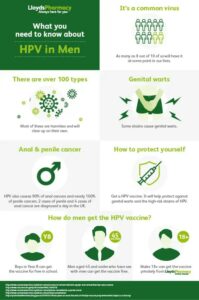
JE Yeah, so it’s a risk to men and HPV is also a risk to women because of the increased transmission. But it seems like so much of our society in terms of public health just focuses on the women. So there, I guess there needs to be a change of attitude there.
FF Yeah, I think that’s comes to down to education as well. In many Western countries, including Australia, UK and US. They already vaccinating the boys for HPV. So, they’re realizing the importance of men or male being protected against HPV that not only protect the men by the same time, but that would also protect a woman as well. And one thing I didn’t mention apart from the cancer risk, apart from the high-risk genotype, HPV, the low-risk HPV, which can cause genital warts, are far more common compared to cancer. And roughly about one to 2% of male population actually would develop genital warts on an annual basis.
JE Okay, so how does one protect themselves? Tests, vaccinations? What should people be doing?
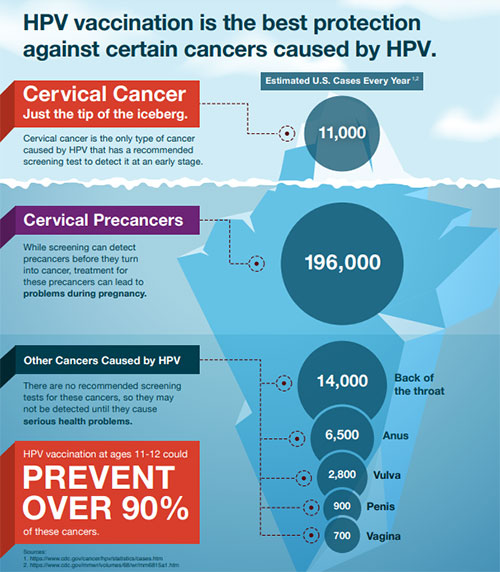
FF I think there are a number of things people can do. As I mentioned, HPV is not only transmitted through sexual context. So, for children, usually they will get their vaccination between nine to 14, that’s the best time to have it. And also at that age, they will only need to have two injections of vaccination rather than having three injections. So that will protect them from any primary infection. So that means protecting them before catching any infections. But even male or female where they’ve been sexually active, it still worth for them to get the vaccine because it can protect them for the future infection. And one important point with HPV vaccine a lot of people misunderstand or even some medical professional would misunderstand is, unlike hepatitis vaccination, where hepatitis when they enter the body go through the blood system, so the whole body gets infected. But HPV is a local infection. So, if one part of the body get infected, doesn’t mean the whole body get infected. So, the part of the body hasn’t got infected will still get the primary protections before getting HPV. So, say for example, someone may have their penis being infected. Now they need to protect against having the HPV transmitted to the anus, for example. So even though they may already carry some HPV, it’s still worth to get the vaccine for other body part protections. And at the same time, most people actually clear up the HPV eventually by themselves, but they can get reinfected. So, when they get reinfected, the vaccine will provide the protection, so that reduce the future infections. So, at any different stage, the person still can get a vaccination. And usually, we’ll divide it into four stages: number one, the first stage is before they are being sexually active. Stage two is they are sexually active, but they haven’t had HPV infection. And stage three is they’ve been sexually active and they already have HPV infection. And number four is they already developed some disease. Now, the best protection is before they become sexually active, and with no HPV infections. But even though people may already have developed abnormal cells in the cervix, or CIN1 or CIN3, if they get vaccinations, then it will help to reduce the recurrence. So, means that you will help them to reduce the chance of repeating, getting abnormal cells, or even people with genital warts, having the vaccination will help them to clean up the virus quicker and also having lesser chance of recurrence. So, the latest stage, the person had the vaccination, they reduce the protection, but it still worth to do because they are in a much higher risk group already.
JE It sounds to me, because it’s so prevalent, that it’s probably something you don’t spend time testing for. It seems like it should everyone should just have the vaccine. Is that sort of the simple approach?
FF Well, in general, people don’t necessarily need to do a test before the vaccination. However, for people we have seen many cases, because say for example, with genital wart, which is a common sexually transmitted disease that we’ll see. Because 90% of people who carry the low-risk HPV do not show any symptoms. So, a lot of asymptomatic carrier and potentially they can pass on to a new partner if the new partner hasn’t been vaccinated. So, generally we will see a lot of cases when couples they are into a new relationship and then suddenly, one person find that they develop genital warts. And then then only trace it back because their partner already carries HPV beforehand. So, I think still worthwhile for people if they’re entering into a new relationship, to get a test to know their own status, and also to know their partner status as well.
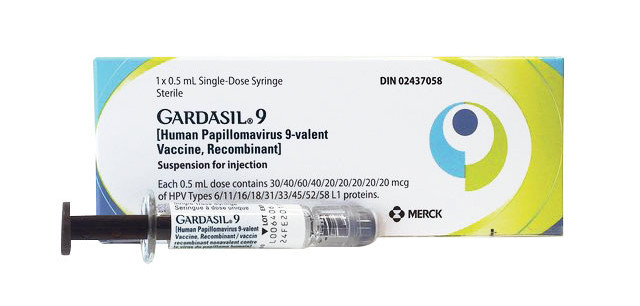
JE Okay, now I know you provide the HPV vaccine and I believe you use something that’s called Gardasil-9. How effective is that? Does that just completely work for men and women? Or are there still risks if you’ve had the vaccine?
FF Well, Gardasil-9 covers nine of the most common HPV types, two of the most common genotypes for low-risk type, and seven of the high-risk types. In general, it reduces the chance for cancer by 90%. And also reduce the chance of genital wart by 90%. So, we’re talking of three nines. So, nine types reducing 90% of cancer risk, and 90% of gentle wart risk.
JE Okay, very, very interesting. And this is available privately in your clinic. Can anyone qualify for a vaccine? There are no restrictions on age minimum, maximum, and anyone can have the vaccine?
FF Well, different countries have slightly different vaccine recommendations. Some of it is probably related to insurance coverage, and also national programs as well. But generally, for children. The minimum age is from nine years old. And there’s no upper age limit for Hong Kong, which follows the EU standards. In America, the coverage is usually up to 45 years old.
JE Okay. Okay, good. So, it sounds like a wise precaution to have given the seriousness of the consequences to men and women. Even in a private plan it’s not extremely expensive. So, it’s, it sounds like a good thing to do. So that’s, that’s a very good overview of HPV. I hope all of the people who are listening out there, men and women, will think about it, will think about whether they’ve had the vaccine, and if they’ve not, do they need to consider getting it and or testing it and maybe with their partner as well. So, thank you very much for your time for our second in the series of the Neo-Health VLOGs on sexual health.
FF Thank you, John.
End.
If you have thought of operating a business in Asia, or already have one, then do not hesitate to contact us to see how we might be able to help you set up, raise private capital, and manage your company’s local administration.
©2024
Add Your Heading Text Here

Benny has worked in the financial markets of China with an emphasis on fixed income, currency and asset-liability management. He is currently Vice President of Longly Capital, a medium-sized, Ningbo-based private fund management company. The firm’s strategies include various types of fixed income portfolio management and convertible bond portfolio management. In addition, Benny offers financial investment services to professional investors such as Fund of Funds (FoF) of securities companies, enterprise investors and high net worth (HNW) individuals.
Benny has also been active on the commercial side of the securities business managing client business development strategies, marketing programmes and roadshows and developing and delivering financial markets training programmes for small and medium-sized banks and other financial institutions.
Benny is fluent in Mandarin, English and Japanese.

Since returning from graduate studies in France to China in spring of 2014, Jina has been continually working in the field of e-commerce and its applications to the financial, entertainment and automotive industries. She is a multi-functional talent and fluent in Mandarin, English and French.
Jina is SEIML’s key relationship manager between foreign clients and the Chinese administrative authorities and has held many responsibilities dealing with international companies and executives operating in China. As a result, she manages all of the company’s Business Process Outsourcing (BPO) activities with clients
With her graduate degree in economics and completion of the Investment Foundations certificate from CFA Institute, she has the knowledge to assist foreign companies in China market research, including reviews of potential customers, suppliers or other third parties. She is also quite savvy in the use of Chinese social media.
Jina is fluent in Mandarin, English and French.

John spent the first 24 years of his career in investment banking, first in Toronto, briefly in New York and then London. He was involved in DCM, ECM and strategic investment advisory to large funds in EMEA.
In 2004 he moved into academia and designed and ran MSc programs in investment management at universities in the UK and China. He also created and managed one of the larger financial professional training organizations in Europe while at the UK university (that was a JV partner in the training firm).
In 2016, John returned to industry to work with start-ups and various platforms and eco systems to support these early and middle stage companies. Initially he pursued this venture in the Shanghai region but then moved to Hong Kong in 2024 to build SEIML’s footprint in Southeast Asia. John is also a Director of the Hong Kong Founder Institute (FI) eco system and Program Director for the FI ASEAN Fintech accelerator.